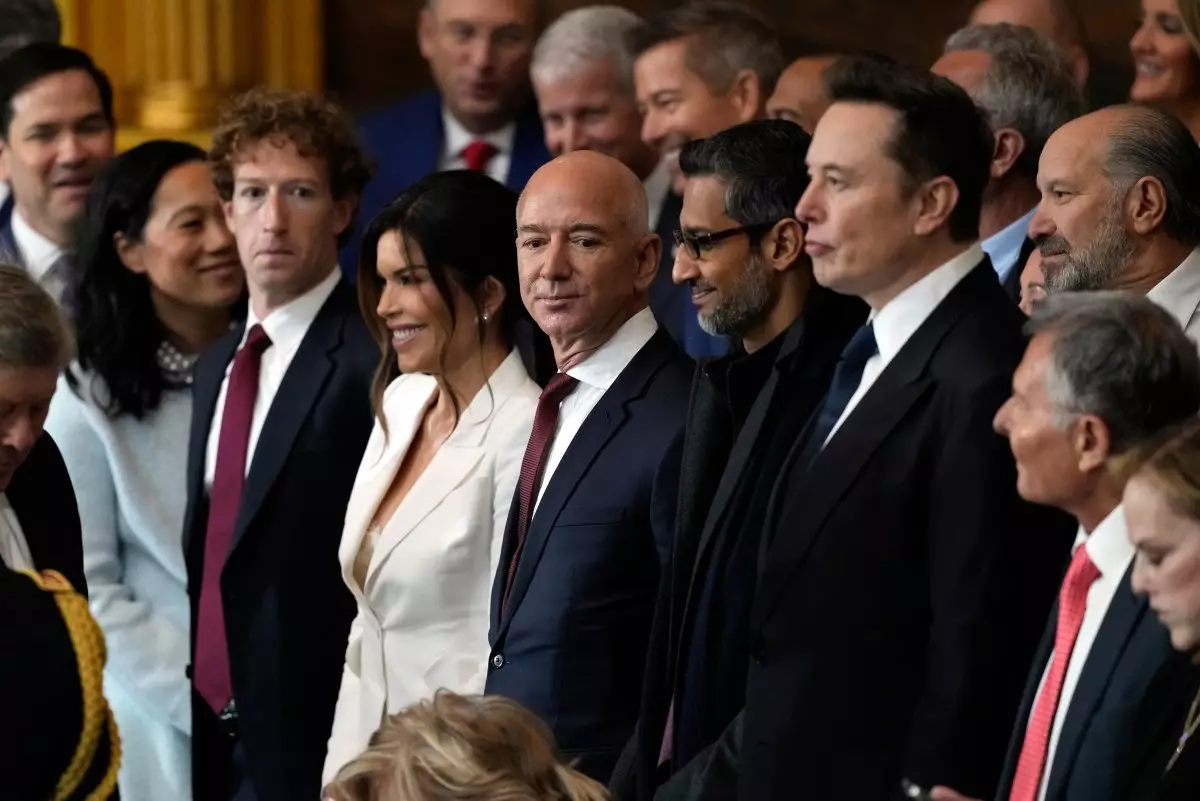On Thursday, House Judiciary Chair Jim Jordan (R-OH) ignited the ongoing culture war between conservative lawmakers and Big Tech by sending a request for information to 16 prominent technology firms. This move signals not just a standard inquiry, but a deeper entrenchment in the political landscape, driven by longstanding accusations of censorship tied to artificial intelligence (AI). The letters, which circulated to executives at companies such as Google and OpenAI, demand past communications with the Biden administration to uncover any potential “coercion” or “collusion” that suggests the suppression of free speech in AI technologies.
This inquiry reveals a strategy that aligns with longstanding conservative narratives asserting that Big Tech operates as a gatekeeper of information, hindering alternative viewpoints under the guise of curbing misinformation. Jordan’s focus on AI represents an evolution of these accusations, shifting from social media platforms to the increasingly influential realm of artificial intelligence, which holds the potential to shape public discourse more profoundly than previous platforms.
The Historical Context of AI Regulation
Jordan’s action isn’t merely a reactive stance; it represents a culmination of Republican strategizing against what they deem an alarming trend of corporate and governmental alignment. The inquiries echo the earlier sentiments from the Trump administration’s technology advisers, who openly criticized the perceived censorship on social media platforms as a betrayal of free speech principles. It marks what could be seen as a tactical pivot—using AI as a focal point in this ongoing ideological skirmish.
By reminding the public of a convoluted narrative of government interference, Jordan casts a wide net to capture attention and stir discontent. His committee previously produced a report alleging that Biden’s administration sought to manipulate AI to control discourse and suppress dissenting voices. This sets a tone that positions AI not only as a technological advancement but as a battleground for political ideology.
The Tech Titans Respond
The response from tech companies has been notably muted; while names like Nvidia and Microsoft chose not to comment, indicating either a strategy of silence or a focused approach to sidestep potential fallout. However, the transformation of AI technology to better accommodate diverse viewpoints suggests a recognition of the mounting scrutiny. Earlier this year, OpenAI announced modifications to their training methodologies to better represent myriad perspectives. This claim was framed by the company as adherence to its core values rather than as compliance to political pressure—a statement that invites skepticism from critics.
Following OpenAI’s lead, other companies like Anthropic introduced more nuanced responses to contentious topics, indicating that the fear of backlash from regulatory bodies has led to significant shifts in AI discourse protocols. Nevertheless, not every company reacted swiftly; Google’s Gemini chatbot, for instance, notably limited its capacity to engage with political queries, a decision that may backfire given the increasing demands for transparency and accountability in AI application.
The Shadow of Big Tech’s Relationship with Politics
Despite the push for more open and nuanced AI systems, the relationship between Big Tech and conservative politics remains fraught with tension. Jordan’s inquiry explicitly points to his perception of Silicon Valley as a breeding ground for bias and ideological skew. The notable absence of Elon Musk’s xAI from Jordan’s list raises eyebrows and indicates a potential divide; Musk, a close ally of Trump, has positioned himself as a vocal critic of AI censorship, suggesting that his company might be privy to a different operational standard.
Meanwhile, certain tech executives have inadvertently stoked conservative accusations of bias. Statements from leaders like Meta’s Mark Zuckerberg, who claims pressure from the Biden administration to censor certain information, reinforce narratives of governmental overreach into corporate operations, fueling conservative rhetoric and potentially influencing voter sentiment as the 2024 elections approach.
The unfolding narrative surrounding AI, censorship, and political maneuvering highlights the complexities of free speech in an increasingly digital age. The implications extend far beyond mere technological parameters, indicating a societal wrestling match over values, governance, and the potential for AI to become the next frontier in the cultural battleground. The stakes are high, and as companies brace for scrutiny, public discourse stands at a crossroad, waiting to see how this intensifying scrutiny of AI will truly unfold.

